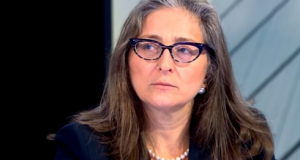 Empathy is the ability to feel another’s suffering or pleasure. It’s a real breakthrough in the evolution of sentient animals like ourselves and it has also been demonstrated by other animals, whales, dolphins, elephants, apes and more. It means we refuse to condone torture or inequality and we can vicariously enjoy each other’s happiness. It’s the one most salient emotion that has led to the development of Human Rights legislation, because if you empathise with others, put yourself in their place, you can understand why life can be unfair and miserable, stimulating you try to do something to make it more fair, equal, just. Although some humans lack this facility, sociopaths and psychopaths particularly, for the most part humans feel for each other and care what happens to those around them or far off in other countries. Empathy galvanized people to send food and aid to those in trouble, those in war zones or hit by natural disasters like earthquakes.
Empathy is the ability to feel another’s suffering or pleasure. It’s a real breakthrough in the evolution of sentient animals like ourselves and it has also been demonstrated by other animals, whales, dolphins, elephants, apes and more. It means we refuse to condone torture or inequality and we can vicariously enjoy each other’s happiness. It’s the one most salient emotion that has led to the development of Human Rights legislation, because if you empathise with others, put yourself in their place, you can understand why life can be unfair and miserable, stimulating you try to do something to make it more fair, equal, just. Although some humans lack this facility, sociopaths and psychopaths particularly, for the most part humans feel for each other and care what happens to those around them or far off in other countries. Empathy galvanized people to send food and aid to those in trouble, those in war zones or hit by natural disasters like earthquakes.
Understanding others, mixing with other cultures and joining in communal events, sharing your experiences, listening to their worries or concerns, giving advice or accepting it are all part of developing empathy. Without it the world would be more hate-filled and desolate than it is today; it would be like going back in time to when life was:
‘No arts; no letters; no society; and which is worst of all, continual fear, and danger of violent death: and the life of man, solitary, poor, nasty, brutish and short.’ (Hobbes: Leviathan)
For many people around the world this is sadly their experience of life and make no mistake, religion plays a very big role in perpetrating and prolonging this. Religion is divisive, intolerant and without empathy. Religious leaders have always preached that those of a different faith are already damned to burn in hell forever. Why would you feel anything for these people? Whatever you could do to them on this earth would not be half of what they will experience in the next life.
If there’s one thing that stops Muslims from understanding more about western culture and the people themselves, it’s the verses in the Qur’an that tells them:
‘Let not believers take disbelievers as allies rather than believers. And whoever [of you] does that has nothing with Allah, except when taking precaution against them in prudence.’ 3:28
‘O you who have believed, do not take as intimates those other than yourselves, for they will not spare you [any] ruin. They wish you would have hardship. Hatred has already appeared from their mouths, and what their breasts conceal is greater.’ 3:118
There are more but these illustrate my point well enough.
In western secular cultures, Muslims tend to keep away from mixing with ‘non-believers’ and therefore isolate themselves. As minorities they are already victims in their own eyes, condemned by their holy book to take’ precaution’ for ‘prudence’ sake. Fear is not the best way to learn about other cultures, even if it were permitted. If Muslims are taught that secularists ‘hate’ them, openly or not, how will they ever come to understand our values or ethics? How will they ever empathise with our fears or misfortunes or us theirs?
I address Muslims specifically here although I know other faiths can be as unsocial and hostile, but at the present time, especially in the Middle East, Muslims and their interpretations of Islam are very much at the forefront of people’s minds. Muslims are at war with each other, because of a schism stemming from a disagreement 1400 years ago; because some don’t practice their faith in the same way; they may interpret the Qur’an differently or use religion as an excuse for violence. Whatever the cause or causes, the oppression, killing and torture is the epitome of Hobbes’ remark above.
Muslims refuse to listen to cries of reason or conciliation because they are forbidden to. It’s to no avail that people of all faiths and no faith offer help or aid or solutions because it’s written in an ancient text that all others harbor hatred for Muslims. It is impossible to make Muslims believe otherwise as this would immediately imperil their souls and bring down upon them not only god’s wrath but that of their families, friends and communities.
So what solution is there? What can non-Muslims do in the light of these prohibitions to promote empathy and understanding? I don’t have the answer; however, I do have suggestions – read verse 6:25
‘And among them are those who listen to you, but We (god) have placed over their hearts coverings, lest they understand it, and in their ears deafness.’
or
‘And even if We (god) had sent down to them the angels [with the message] and the dead spoke to them [of it] and We (god) gathered together every [created] thing in front of them, they would not believe unless Allah should will. But most of them, [of that], are ignorant.’ 6:111
or
‘And thus We have made for every prophet an enemy – devils from mankind and jinn, inspiring to one another decorative speech in delusion. But if your Lord had willed, they would not have done it, so leave them and that which they invent.’ 6:112
and
‘So whoever Allah wants to guide – He expands his breast to [contain] Islam; and whoever He wants to misguide – He makes his breast tight and constricted as though he were climbing into the sky.’ 6:125
Then ask yourself these questions –
If the Qur’an says god can ‘will’ or ‘guide’ anyone to him, why doesn’t he?
Why would god want to ‘misguide’ people?
Why would god create all humans and make them war with each other when it would be simple to stop it?
What makes god choose who will be a Muslim? Or Sunni or Shia’?
Why was it you and not me? I didn’t choose which country to be born in or to which parents, so how can it be my fault?
When Muslims can discuss these questions and others with genuine open minds, when Christians or Hindus or any of the people with faith in a god or gods can really listen and are willing to learn – then there will be a solution.
Writer: Kay Saxon
The writer is a UK based columnist working with THE PASHTUN TIMES. She is graduated from the University of Central Lancashire, North of England. She can be reached at
kaysaxon@hotmail.co.uk
ALL RIGHTS RESERVED WITH THE PASHTUN TIMES
 Pashtun Times Latest News
Pashtun Times Latest News



